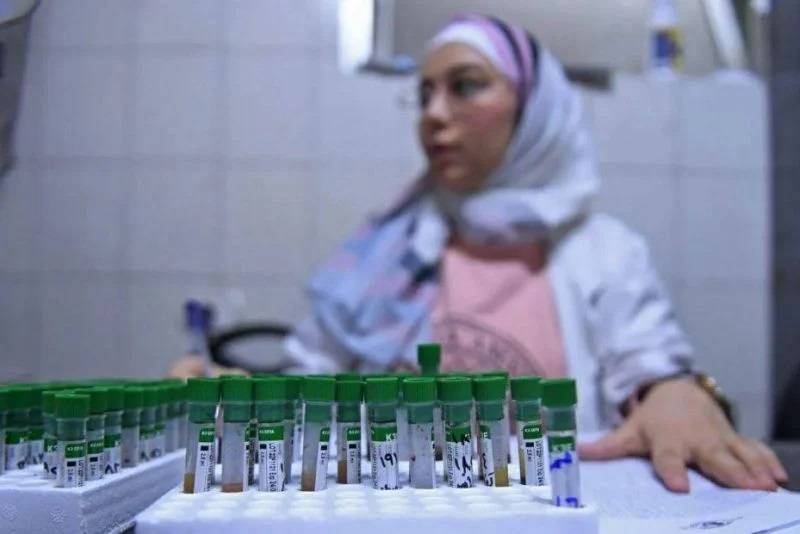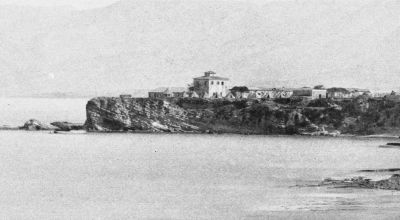
A lab technician works on samples to test for cholera at a hospital in Syria's northern city of Aleppo on Sept. 11, 2022. (Credit: AFP)
BEIRUT — The World Health Organization on Friday said that sewage water testing conducted in Ain al-Mreisseh in Beirut, Ghadir station, and Burj Hammoud in Mount Lebanon confirmed the presence of cholera.
The WHO said that this indicates that cholera — an acute diarrheic infection caused by ingestion of food or water contaminated with the bacterium Vibrio cholerae — has spread to two other regions of the country located far from the initial confirmed cases in Akkar, North Lebanon.
Commenting to Aljadeed TV on Saturday regarding rumors circulating about tap water being contaminated in Beirut, the head of the Beirut and Mount Lebanon Water Establishment Jean Gibran denied the news as "completely false" and said that "everything is still under control." Gibran also said that his water establishment is testing its water on a weekly basis and has found nothing yet to suggest the presence of cholera in the supply. The establishment supplies tap water to these two areas. He added that the Beirut and Mount Lebanon Water Establishment adds chlorine to its water, which kills cholera. Gibran did not mention any report regarding testing of sewage waters.
Contacted by L'Orient Today, Gibran wasn't immediately available to offer further comment on this matter.
Experts have previously told L'Orient Today that the risk of cholera spreading to Lebanon’s public water infrastructure is "low."
Abiad visits the field
Caretaker Health Minister Firass Abiad said Saturday, during a field trip to Tripoli (North Lebanon), that a plan to fight the outbreak has been put in place. He noted that "a platform that promotes data sharing was launched a few days ago for disaster management" and stressed the need for "awareness campaigns to be conducted in all regions."
"It is also essential to examine the water," he added, noting that the Lebanese Red Cross will be in charge of "examining the cleanliness of water trucks, monitoring their work and taking care of disinfecting them."
Regarding vaccination, Abiad said that the cholera vaccine is "effective, administered orally, and provides protection within a maximum of one week."
"Nearly 10,000 doses of the vaccine will arrive in Lebanon within the next 10 days and will be used primarily by medical teams dealing with the spread of cholera and by people in crowded places such as prisons," he said. "We expect large quantities to be delivered. Then we can distribute them to schools and other institutions," he added.
In a report released Friday, the Lebanese Health Ministry said it had identified seven new cases in the previous 48 hours, bringing the total number of infections to 227. Two new deaths were also reported, bringing the total to seven.
On Wednesday, Abiad expressed concern, especially following the "rapid spread of the disease." Although most of the cases have been recorded "among [Syrian] refugees," there has been "an increase in cases among Lebanese," he said.

